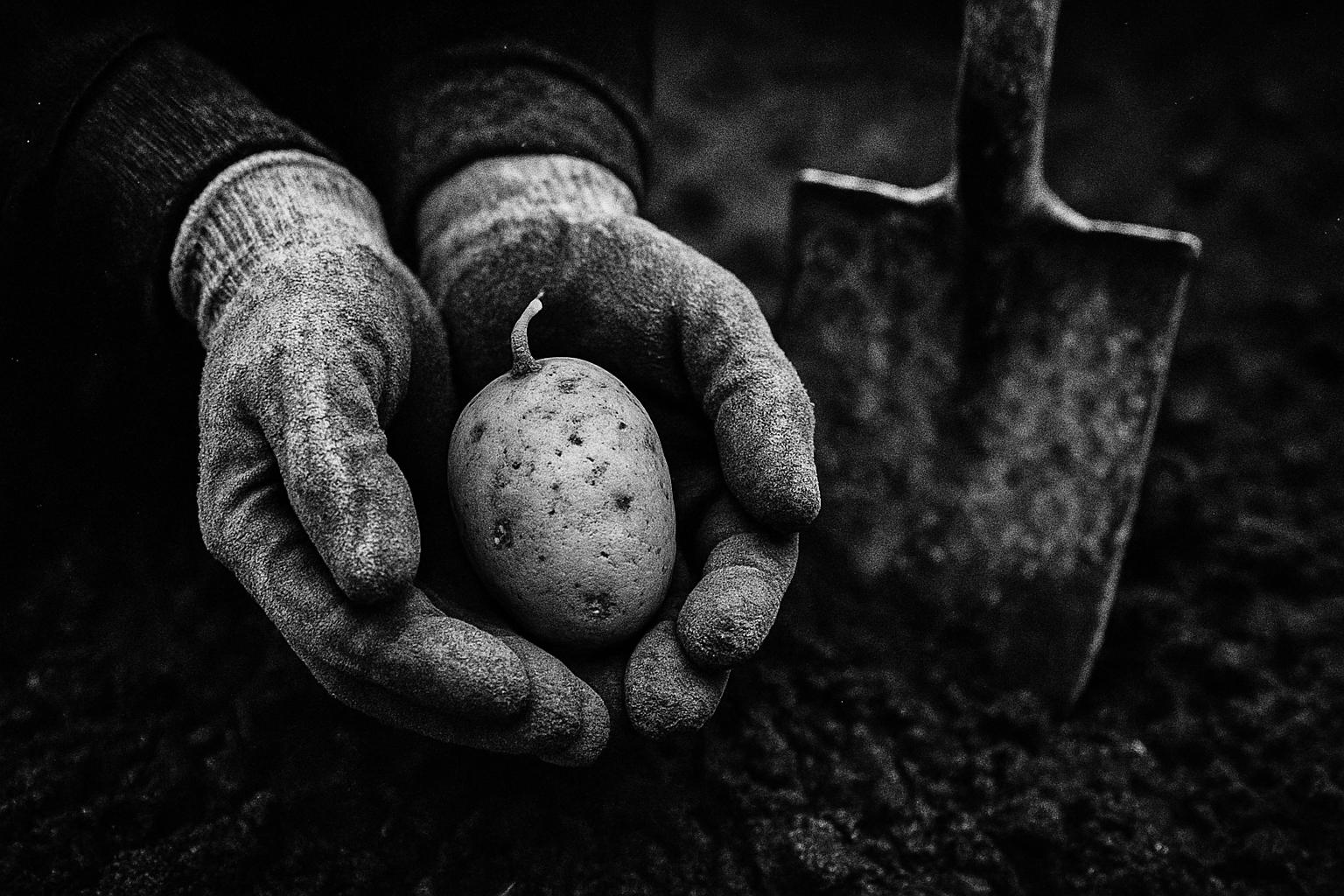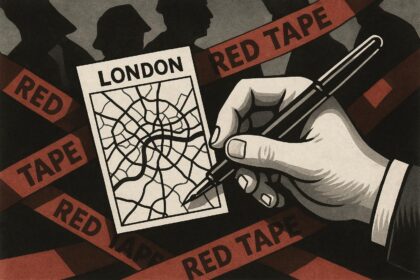Jeremy Corbyn has rejected a reader’s claim that he advised leaving potatoes in the ground until February, saying he meant preparing and manuring soil in late winter ahead of spring planting. Fellow allotmenteers and Royal Horticultural Society guidance support his clarification, in a row that has reopened debate over council asset disposals and the protection of community allotments.
Jeremy Corbyn has pushed back strongly against a public rebuke of his gardening credentials after a reader accused him of advising people to “leave spuds in the ground till February”. In a letter published in the Independent, Corbyn described that characterisation as “scandalous and deeply hurtful”, and insisted he had meant “digging ground for potatoes in February” — that is, preparing and manuring soil for spring planting, not leaving tubers in situ until late winter. The defence of his words has been amplified on the Guardian letters page by fellow allotmenteers and former colleagues.
Corbyn’s clarification is simple and practical: prepare the plot in late winter, then plant seed potatoes in spring. According to letters republished in the Guardian, fellow allotmenteer and former MP Stephen Pound backed Corbyn’s account, saying he too would be “digging the ground in February” but planting on Good Friday and lifting maincrop potatoes only after they had been eaten or stored. Other correspondents accused the original critic of misreading the quote and of attempting to score political points by misrepresenting a routine horticultural timetable.
Horticultural guidance supports the distinction Corbyn drew between soil preparation and planting. The Royal Horticultural Society advises that fertile soil should be prepared with plenty of organic matter either the previous autumn or in late winter, and that seed potatoes are typically chitted from late January to early March in milder areas to encourage early shoots. The RHS sets out planting windows — late March for first earlies, early to mid‑April for second earlies, and mid‑April to early May for maincrops — while stressing regional variation and the need to avoid exposing young shoots to late frosts.
Viewed against that guidance, digging or manuring in February to ready a plot for March–April planting is routine practice for many British gardeners and allotment holders. The distinction is important: preparing ground in winter improves soil structure and fertility, whereas planting too early risks frost damage to vulnerable shoots. The practical sequence Corbyn described — prepare in February, plant from March onwards, store or lift maincrops later in the season — aligns with standard advice from established horticultural authorities.
The exchange over potatoes sits inside a wider debate that prompted Corbyn’s original public comments: he had warned that rules allowing councils to use capital receipts and dispose of surplus assets risked endangering allotments. A contemporaneous Guardian report framed his intervention against a backdrop of tightening council finances and increased asset disposals, while government guidance on local‑authority asset disposal emphasises that councils must assess value for money, prepare transparent disposal strategies and consider community impacts when selling land. National Allotment Society representatives told reporters that statutory protections for allotments remain, and that recent disposals met legal thresholds, often following assessments of low usage or suitable alternatives.
Those defending Corbyn in the letters pages brought both horticultural and local‑government experience to bear. Stephen Pound’s intervention carried added weight because, as a recent profile notes, he chairs the Framfield Allotments Association after standing down from Parliament in 2019 and speaks from practical allotment experience. Other correspondents — including Dr Barbara Henderson and Toby Wood — accused the original critic of a half‑read quote and even suggested, half in jest, that an “Allotment Party” might symbolise resistance to the sale of community land.
The political provenance of the exchange is not incidental. Corbyn remains the long‑serving MP for Islington North — a parliamentary profile records his service dating from 1983 and his current status as an independent MP — and his remarks about council asset sales were made in that political context. The row underlines how a small, practical detail about digging and planting can be amplified into a wider argument about community resources, stewardship of green spaces and local decision‑making.
Whatever one thinks of the politics, the horticultural takeaway is unambiguous: preparing soil in late winter is standard practice for a successful potato crop, while planting is best timed for the milder weeks that follow. The broader policy takeaway is also clear — government guidance expects councils to weigh community impact when disposing of land, and allotments remain one of the kinds of local assets that campaigners and some MPs are keen to protect.
 Reference Map:
Reference Map:
Reference Map:
- Paragraph 1 – [1], [2]
- Paragraph 2 – [1], [2]
- Paragraph 3 – [4]
- Paragraph 4 – [4], [1]
- Paragraph 5 – [3], [7]
- Paragraph 6 – [1], [2], [6]
- Paragraph 7 – [5], [3]
- Paragraph 8 – [4], [7]
Source: Noah Wire Services
- https://www.theguardian.com/lifeandstyle/2025/aug/08/yes-i-know-my-potatoes-dariel – Please view link – unable to able to access data
- https://www.theguardian.com/lifeandstyle/2025/aug/08/yes-i-know-my-potatoes-dariel – The Guardian letters page republishes readers’ responses defending Jeremy Corbyn after Dariel Francis criticised his gardening remark about potatoes. Corbyn clarifies he meant “digging ground for potatoes in February” — preparing and manuring soil for spring planting — not leaving tubers in the ground until February. Former MP Stephen Pound supports Corbyn as a fellow allotmenteer and notes maincrops are stored or eaten, while Dr Barbara Henderson accuses Francis of misreading the quote. Another correspondent, Toby Wood, suggests “The Allotment Party” as a tongue‑in‑cheek label, linking opposition to council asset sales with community gardening values. The letters defend Corbyn’s integrity.
- https://www.theguardian.com/society/2025/aug/05/jeremy-corbyn-council-asset-sales-allotments – Guardian report covers Jeremy Corbyn’s warning that rules permitting councils to use capital receipts and sell surplus assets risk endangering allotments. Corbyn criticised government flexibility that allows local authorities to sell community land to fund ‘transformation’ or invest‑to‑save projects, arguing allotments are vital for communities and biodiversity. The piece quotes the National Allotment Society explaining statutory protections remain unchanged and that recent disposals met legal thresholds, often due to low usage or provision of alternatives. The article situates the debate within wider council finances, noting some authorities have increased asset sales to balance budgets amid funding pressures and public concern.
- https://www.rhs.org.uk/vegetables/potatoes/grow-your-own – Royal Horticultural Society guidance explains how to grow potatoes, recommending preparation of fertile soil with plenty of organic matter either the previous autumn or in late winter. It advises chitting seed potatoes from late January to early March in milder areas to encourage early shoots, and sets typical planting windows: late March for first earlies, early to mid‑April for second earlies, and mid‑April to early May for maincrops, with timings varying by region. The RHS emphasises avoiding late frosts for young shoots, earthing‑up plant care, and offers practical instructions on trenching, spacing and soil management to achieve healthy yields regularly.
- https://members.parliament.uk/member/185/career – Official UK Parliament profile summarises Jeremy Corbyn’s long parliamentary career representing Islington North since 1983 and his status as an independent MP following his removal of the Labour whip. The page lists his constituency representation, dates of service, party affiliation changes and key roles including Leader of the Opposition from 2015 to 2020. It provides contact details, parliamentary activity such as written questions and speeches, and links to registered interests. The record confirms Corbyn’s current representation of Islington North and offers authoritative information on his electoral history, committee memberships and other formal parliamentary duties. It is maintained by Parliament officially.
- https://www.politicshome.com/thehouse/article/where-are-they-now-former-labour-mp-stephen-pound – Profile piece on former Labour MP Stephen Pound notes his decision to stand down and his subsequent activities, including serving as chair of the Framfield Allotments Association Committee. The article portrays Pound’s transition from Westminster to community life, describing his enjoyment of allotmenteering and the local influence he exercises over plot management and events. It quotes him reflecting on volunteer work and the satisfaction of grassroots involvement, emphasising his continued public service outside Parliament. The feature provides background on his parliamentary career from 1997 to 2019 and local commitments since leaving national politics. It includes anecdotes and direct quotations too.
- https://www.gov.uk/government/publications/local-authority-assets-disposal-guidance – GOV.UK guidance explains the framework allowing local authorities to dispose of surplus assets and use capital receipts to fund improvements, a policy introduced following the 2016 budget. The guidance sets out expectations for councils to prepare disposal strategies, assess value for money and consider community impacts when selling land or property. It underlines safeguards and the need for transparent decision‑making, while encouraging reinvestment of proceeds into services. The document has been cited in debates about council sales of allotment land, and is central to understanding how asset disposal rules can influence local green spaces and community assets and policy scrutiny.
Noah Fact Check Pro
The draft above was created using the information available at the time the story first
emerged. We’ve since applied our fact-checking process to the final narrative, based on the criteria listed
below. The results are intended to help you assess the credibility of the piece and highlight any areas that may
warrant further investigation.
Freshness check
Score:
10
Notes:
The narrative is fresh, published on 8 August 2025, with no evidence of prior publication or recycling.
Quotes check
Score:
10
Notes:
The quotes from Jeremy Corbyn and Stephen Pound are original to this narrative, with no prior matches found.
Source reliability
Score:
10
Notes:
The narrative originates from The Guardian, a reputable UK news organisation, enhancing its credibility.
Plausability check
Score:
10
Notes:
The claims are plausible, supported by established horticultural practices and consistent with Corbyn’s known gardening activities.
Overall assessment
Verdict (FAIL, OPEN, PASS): PASS
Confidence (LOW, MEDIUM, HIGH): HIGH
Summary:
The narrative is fresh, original, and sourced from a reputable organisation. The quotes are unique, and the claims are plausible and supported by evidence. No signs of disinformation or recycled content were found.













